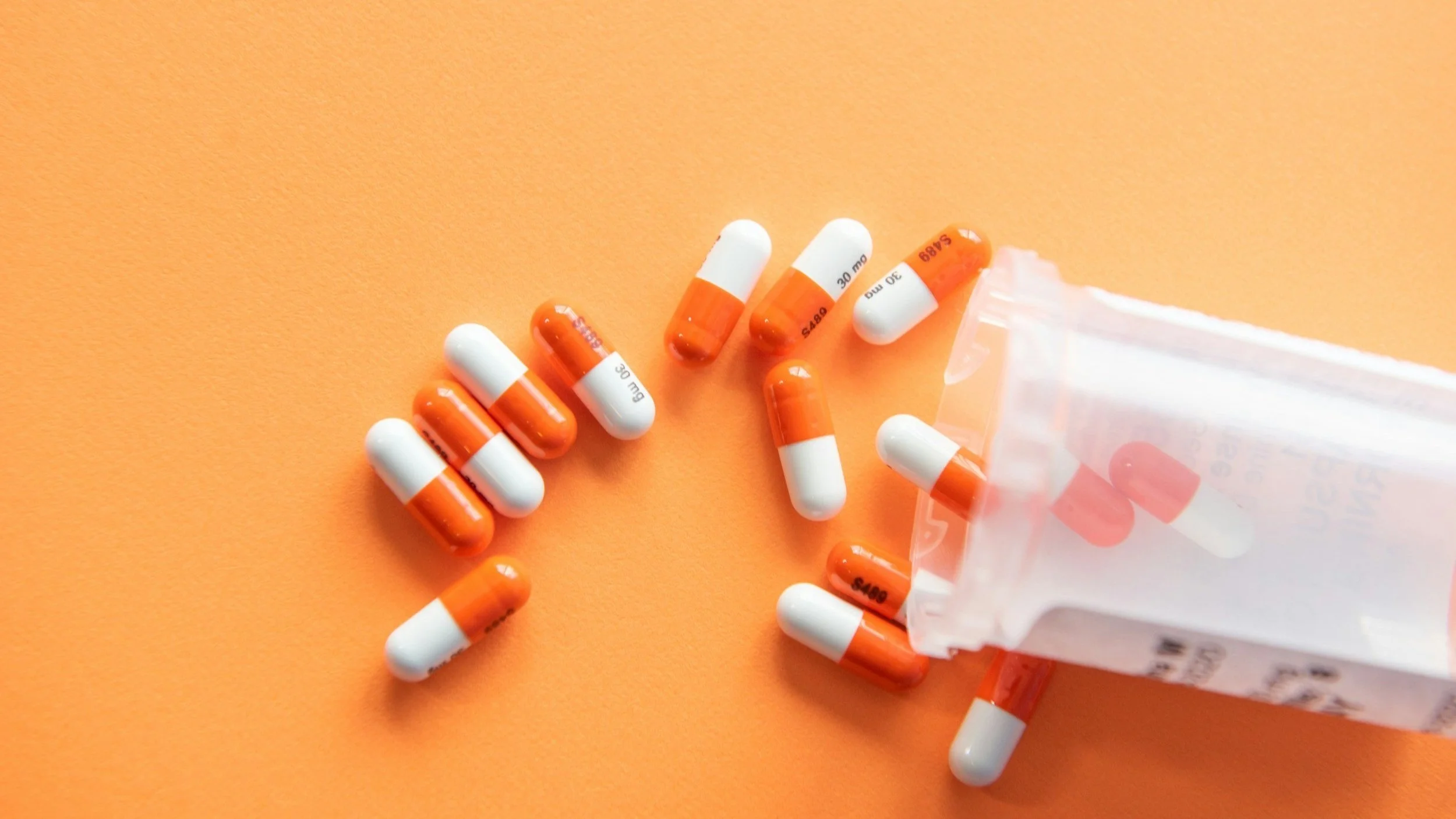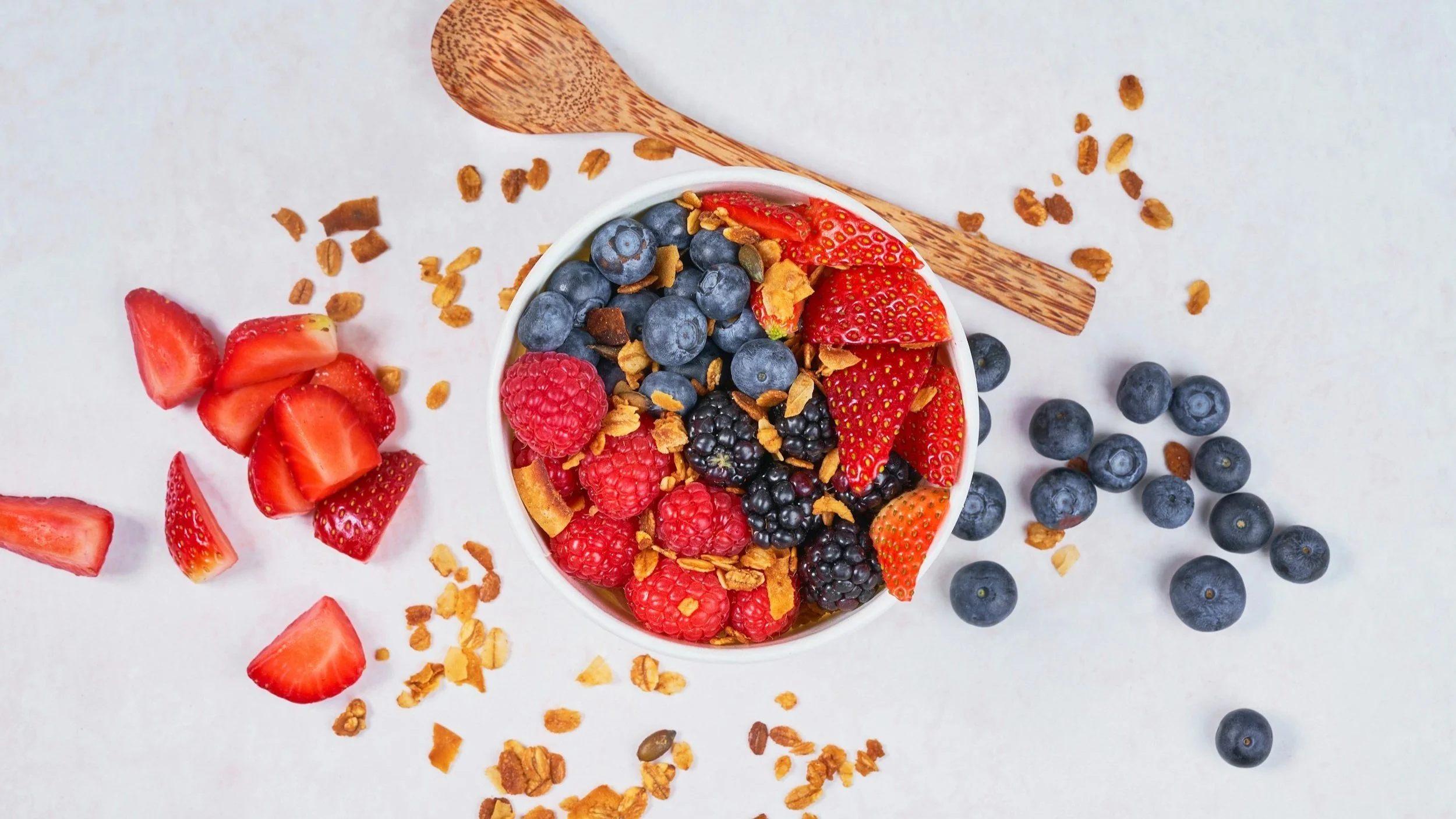Can You Heal Acid Reflux Naturally? A Dietitian’s Perspective
Many people struggle after finishing a round of acid-suppressing medications like PPIs or H2 blockers. Symptoms return with a vengeance—or shift into something new. Some want to reduce their dose but are scared of triggering flare-ups. Others feel like their medication has stopped working. Still others are just wondering… is it possible to heal reflux naturally?
If you’ve asked yourself this, you’re not alone. The truth is, there’s no one-size-fits-all answer. But healing is possible. And it doesn’t always require lifelong medication or eliminating all your favorite foods.
Let’s walk through how this healing process can look—and what natural strategies actually work.
Understanding the Reflux Puzzle
Reflux isn’t a one-path condition. There are multiple contributors, and addressing just one piece of the puzzle rarely leads to long-term relief.
For some, reflux is primarily mechanical—a weakened lower esophageal sphincter (LES), a hiatal hernia, or delayed gastric emptying. For others, the root cause is more functional: nervous system dysregulation, poor motility, low stomach acid, or even chronic constipation. Most often, it’s a combination.
This is why no one food list or supplement protocol works for everyone. The goal of natural healing isn’t just symptom relief—it’s understanding what’s driving your symptoms and using that insight to support healing from the inside out.
What Happens When You Stop Acid-Suppressing Medications?
Let’s talk about rebound acid production.
PPIs and H2 blockers reduce acid secretion by suppressing the stomach's natural processes. When you stop them, your body may respond by temporarily overproducing acid. This rebound can trigger a resurgence of symptoms that may feel even worse than before—not because your reflux got worse, but because your stomach is adjusting to producing acid again.
For individuals with erosive esophagitis, Barrett’s esophagus, or ulcers, medications may be medically necessary and long-term. These are important cases where stepping off medication without a solid plan can be harmful. Always consult your doctor before stopping or starting a medication or supplement.
For those who don’t need to stay on medication long-term, or who are curious about additional support options, there are many strategies that can help ease symptoms and support healing—whether or not you're currently taking medication. The goal isn’t necessarily to stop your medication, but to build a stronger foundation so your body can work better alongside (or eventually, beyond) it.
So What Does “Healing Naturally” Look Like?
Healing reflux naturally is not about restriction or perfection. It’s about being strategic. Let’s dive into the key pillars:
1. Nutrition That Supports Digestion & Reduces Pressure
Eliminating food triggers can be helpful—but it’s not the full picture. Instead of focusing only on what to remove, consider what to add in:
Smaller, more frequent meals can prevent excessive pressure on the stomach, especially compared to eating large meals in one sitting.
Include a variety of fiber-rich and microbiome-friendly foods like oats, quinoa, leafy greens, pumpkin, squash, and flax or chia. Complex carbs and diverse plant foods feed healthy gut bacteria that support digestion and immune balance.
Choose gentle textures when symptoms are flared (soups, stews, smoothies, and purees), and prioritize slow eating and chewing to support salivary enzyme activity and stimulate the digestive cascade.
2. Personal Trigger Awareness (Not Just Blanket Avoidance)
“Triggers are personal.” It’s true that coffee, chocolate, citrus, and spicy foods are common triggers—but not everyone reacts the same way. Instead of eliminating everything from the start:
Begin journaling to track habits and symptoms. Where you stressed, in a hurry, or relaxes while eating? Did you get to 80% fullness or do you think you had more than your stomach can handle at once? Did you have your coffee before or after breakfast?
Try removing 1–2 potential triggers and track your symptoms.
Pay attention to timing, portion size, hydration, and stress levels, which all affect how your body reacts
If symptoms improve, remember that a few weeks later it’s okay to reintroduce foods slowly to explore your personal tolerance—some may be fine occasionally, while others might still be best avoided.
3. Support Digestive Function + Motility
Reflux isn’t always about acid excess—sluggish digestion is often the missing link. When food sits in the stomach too long, it ferments, creates gas, and increases pressure.
To support digestion from the top down:
Chew thoroughly and eat slowly. This allows salivary enzymes to begin breaking down carbohydrates and signals the stomach to release gastric juices in proper sequence.
Incorporate natural bitter foods like arugula, dandelion greens, or endive before or with meals (if tolerated). These gently stimulate digestive secretions.
Focus on plant diversity, fiber, and complex carbs to nourish beneficial gut bacteria that improve motility and reduce inflammation.
Go for a light walk after meals to help move things along.
Prioritize consistent, high-quality sleep, which is foundational for digestion and repair.
4. Hydration (Done Right)
Water is essential for digestion and motility—but too much at the wrong time can make symptoms worse.
A few strategies that help:
Sip water throughout the day rather than chugging large amounts at once.
Avoid drinking large volumes during meals, which can dilute digestive enzymes.
Avoid drinking before lying down or during intense movement—both can increase pressure and trigger symptoms.
Try mineral-rich fluids like coconut water or herbal infusions for gentle hydration and electrolyte support.
5. Calm the Nervous System
Reflux can’t fully heal if your nervous system is stuck in overdrive. The gut and brain are connected, and stress slows digestion, tightens muscles, and heightens sensitivity.
Simple strategies that support the nervous system:
Take 2–3 deep breaths before eating to activate a rest-and-digest state.
Practice mindful meals—avoid screens and chew slowly.
Incorporate vagus nerve stimulation (humming, cold exposure, or light singing).
Prioritize sleep and rest, as poor sleep increases cortisol and impairs digestion.
6. Reduce Inflammation with Food & Lifestyle
Chronic inflammation in the esophagus or upper GI tract can maintain reflux symptoms even after acid levels normalize.
To reduce inflammation and support tissue healing:
Emphasize anti-inflammatory foods like wild salmon, flaxseed, ginger (if tolerated), turmeric, cinnamon, leafy greens, and berries.
Avoid pro-inflammatory irritants like excess caffeine, alcohol, and frequent NSAID use.
Use gentle preparation methods—like steaming, baking, or slow cooking—to make foods easier to digest.
7. Individualized Herbal + Nutrient Support
Some people benefit from herbs and nutrients that soothe tissue, reduce inflammation, or support motility—but supplements are not a shortcut and aren’t right for everyone.
We use tools like slippery elm, DGL, chamomile, zinc carnosine, or l-theanine when appropriate—but always based on the person’s specific symptoms, medical history, and medication use. What works for someone else might not work for you.
Talk to your doctor before starting or stopping any medication or supplements.
What Healing Can Look Like
Healing doesn’t mean you’ll never feel symptoms again. It means you’re no longer defined or limited by them.
You might notice:
Meals are less stressful
You’re sleeping better
You can enjoy more variety without flare-ups
You’re less reliant on medications, and more in tune with your body
Healing is possible. And small, consistent shifts add up to meaningful change.
So… Can Acid Reflux Be Healed Naturally?
For many people, yes—acid reflux can be managed, reduced, and even fully resolved through natural strategies. That healing often looks like fewer symptoms, more food freedom, better sleep, and less reliance on short-term fixes.
But natural healing isn’t about pushing through without support, and it’s not the right path for everyone. In some cases—especially when there’s advanced inflammation or structural issues—medications play a necessary role.
The key is understanding what’s driving your symptoms, and finding a strategy that supports your body’s ability to function and heal.
That might include:
Medication for a period of time
Nutrition that supports digestion
Tools that calm the nervous system
Lifestyle shifts that reduce inflammation and pressure
When all of those pieces come together, natural healing becomes not just possible—but sustainable.
Ready to Feel Better?
If you're looking to heal reflux naturally—or simply want more tools to support your gut health—we’d love to help.
Our team is here to guide you at every step of your journey. Whether you’re just starting or looking for more advanced support, we’re ready to help. Apply for a 1:1 session to receive a personalized plan that addresses your symptoms, medical history, and underlying causes with tailored nutrition, lifestyle, and supplement recommendations.
Watch the Reflux Relief Webinar and don’t forget to explore our FLORA App for additional resources, tools, and support to enhance your wellness journey!
Your body is capable of healing—and you don’t have to do it alone.
Written by Molly Pelletier, MS, RD, LDN | Molly Pelletier is a Registered Dietitian specializing in acid reflux/GERD/LPR/IBS and a leading voice in nutrition for acid reflux. Molly's background in nutrition science and her personal health journey with GERD culminated in the curation of FLORA Nutrition, where she shares evidence-based tools and strategies to help others recover from reflux and optimize their overall well-being. Follow Molly on Social Media @mollypelletier.rd on all platforms
| YouTube | Instagram | TikTok | Pinterest |
Blog co-created with FLORA Team Member & BS Nutrition, Marián Carzó







